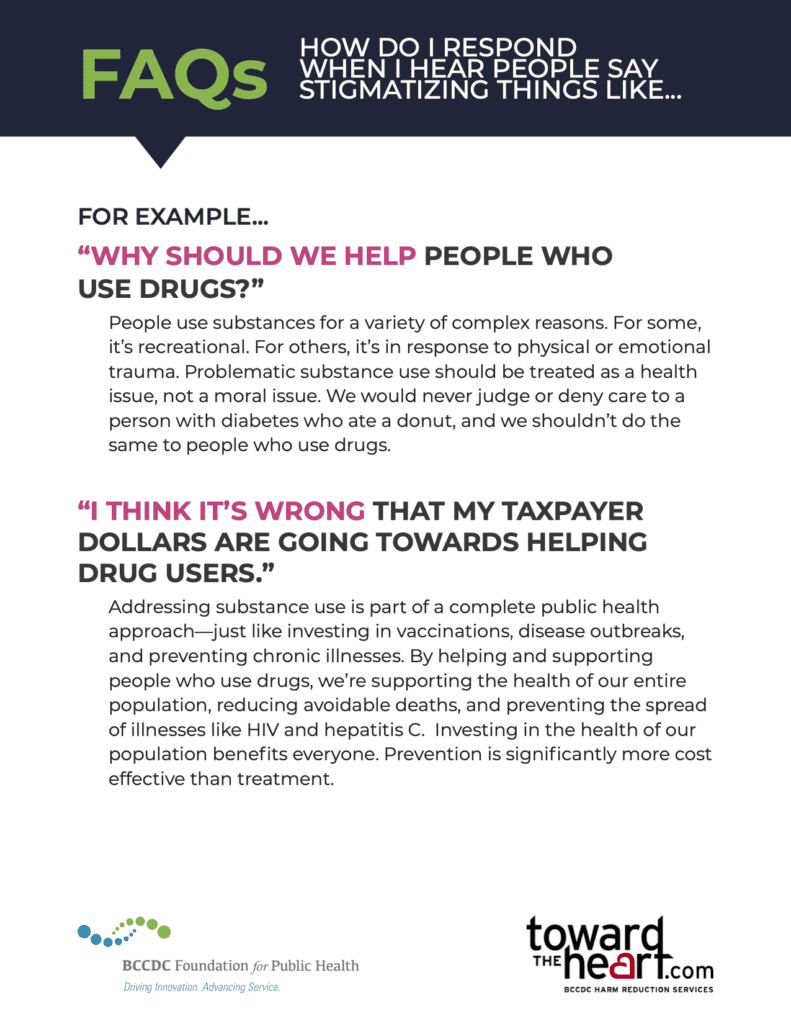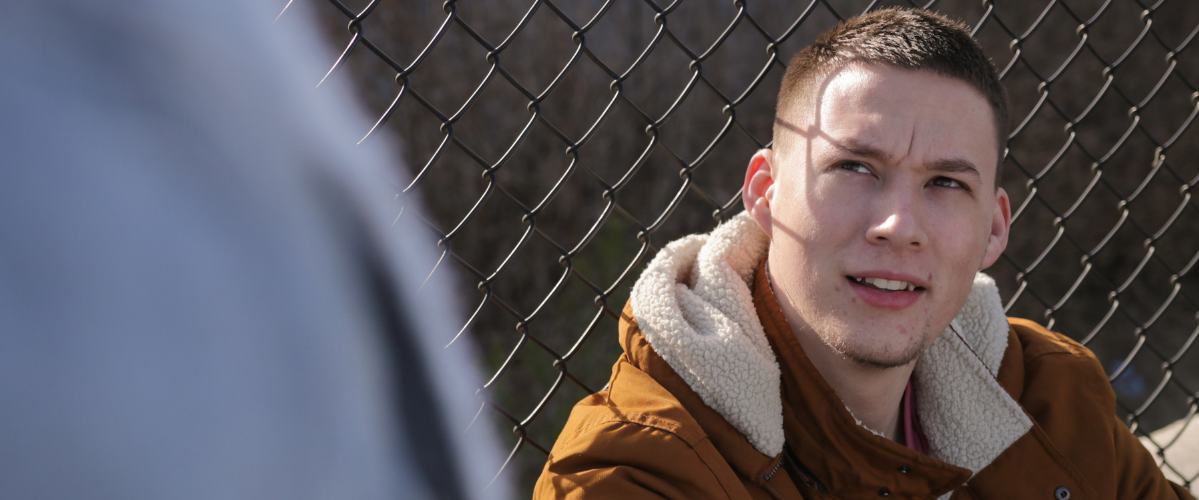Stigma is killing people who use drugs (PWUD), but we as individuals and as a society can stop it.
We know that stigma often causes people to use alone, putting them at greater risk of an overdose because no one is there to help save their life. It also causes fear of judgment from family and friends. Hiding one’s substance use plus stigmatizing experiences within the healthcare system discourage people from seeking the support and care they need. We also know that Indigenous people face intersecting inequities, systemic racism, and stigma related to substance use which leads to disproportional impact within the overdose crisis.
These sad truths are compounding with the COVID-19 pandemic and a toxic drug supply that is worsening the overdose crisis.
We can all play a role in eliminating stigma to prevent overdoses and save lives. Experts, advocates, and people with lived experience are battling for a safe supply of drugs and decriminalization; we can join them through actions we can take, every day, starting now. It’s time to shift our thinking, language, and systemic barriers; and focus on comprehensive measures involving policy, structural, and social change. These changes begin with us. This is how we improve the health of our population.
Think.
Awareness of our judgments is the first step. Eliminating biased and negative assumptions, whether calculated or not, can begin to shift thinking and understanding. When you see someone who may appear homeless, altered, or asking for help on a street corner, rather than making assumptions, ask yourself: “I wonder if trauma has occurred in this person’s life?” Remind yourself no one chooses a life of problematic substance use or homelessness, and that this “stranger” is someone’s brother, uncle, mother, daughter, friend—and a person.
Learn.
Whether it’s reading about stigma, taking naloxone training, or learning how to respond to an overdose, evidence-based information will provide answers. Even taking a step to learn is a positive step. You can start with our resource page and checking out Toward the Heart BCCDC’s Harm Reduction Program. The more you know, the more you understand, and the more power you have to make a difference.

Speak.
Words matter. By removing stigmatizing words like ‘addict’ or ‘junkie’ from our vocabulary, we begin to break down barriers. Speak up when you hear stigmatizing language or if you witness discrimination. Watch these short videos to learn more about why words matter and how changing the conversation can reduce stigma.
Share.
Share your knowledge and evidence-based information with your friends and family. Open dialogue can shift beliefs and allow new understandings to emerge. Begin productive conversations on social media by sharing reputable sources and asking your followers to read and engage. Start a conversation over dinner by asking your friends: what does stigma mean to you? How would decriminalization of PWUDs save lives? During this deadly intersection of COVID-19 and the overdose crisis, it’s imperative we come together to learn how to support our communities.
Advocate.
Speaking to our friends and family is a start, but we also need to speak to those in power positions. We must demand our healthcare system become centered in culturally-safe, trauma-informed care, that is equitable and accessible for everyone. We need major drug policy change and dedicated resources, directed to the right place, like supporting peers. Whether it’s a letter to your MLA; your vote; a peaceful and safe protest (during COVID-19, avoid large gatherings unless you can interact in ways that project everyone); or public engagements like memorials that honour the lost lives and victims of the overdose crisis; your voice can be heard.
Donate.
Supporting experts means supporting people with lived and living experience (peers). Peers are the frontline experts creating overdose prevention and harm reduction services where they are most needed and persevering to eliminate stigma. This is why we’re supporting the Compassion, Inclusion, Engagement program, a partnership between the BC Centre for Disease Control and the First Nations Health Authority, that focuses on culturally-safe, community-based, and peer-led services. We need your help to support expert peers who save lives every day, and you can help by donating.
Activate Health.
Your actions, whether you take one or all, will make a difference. Your actions can save lives. This is how we, together, Activate Health to break down the barriers of stigma and discrimination and create an equitable, inclusive, safe, and healthy society.
